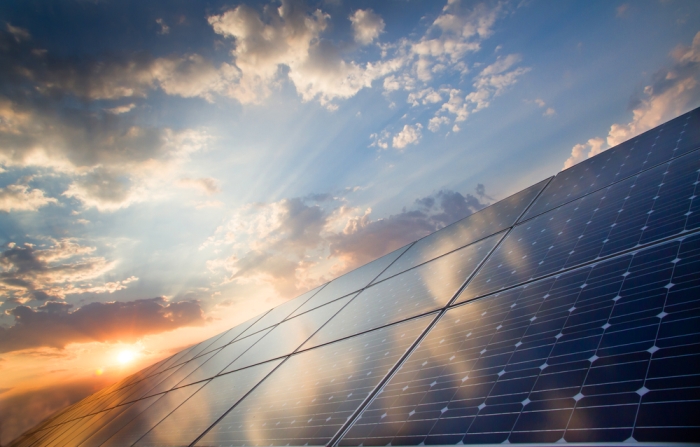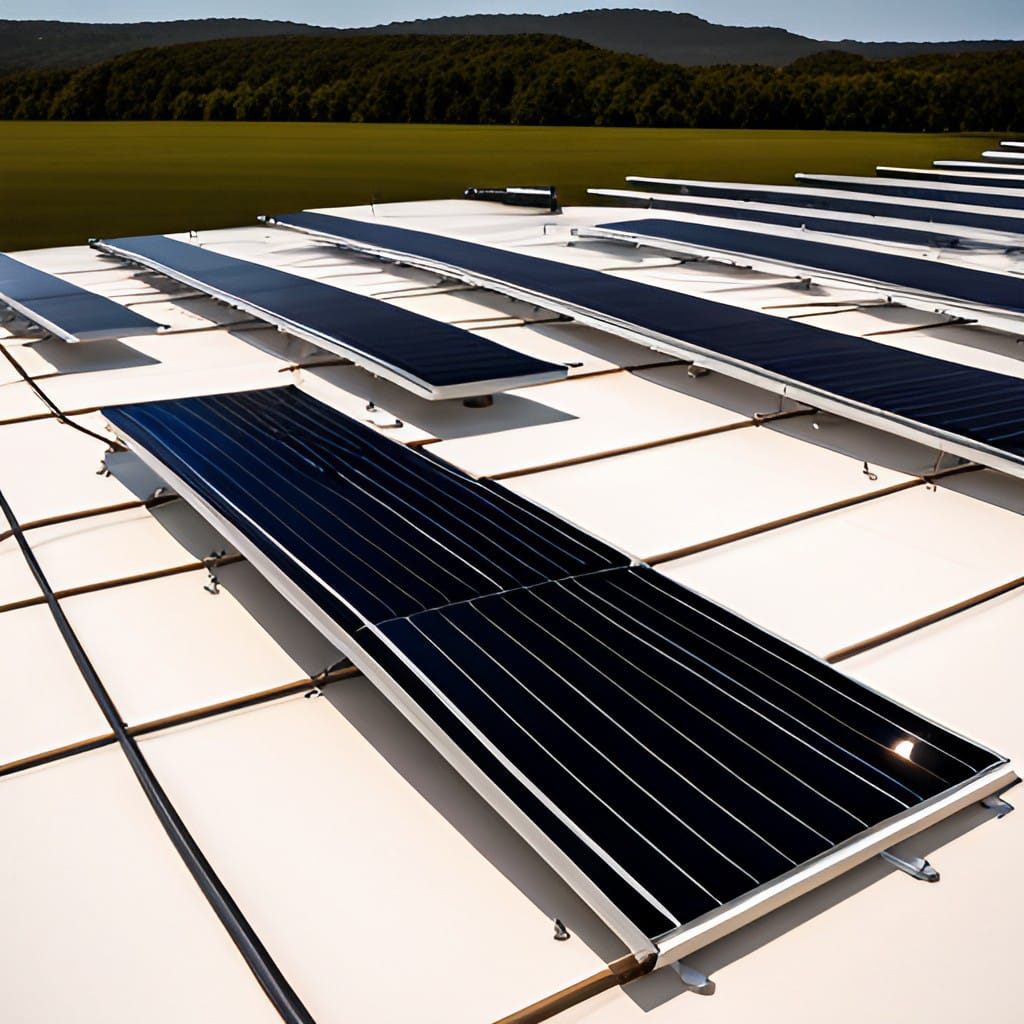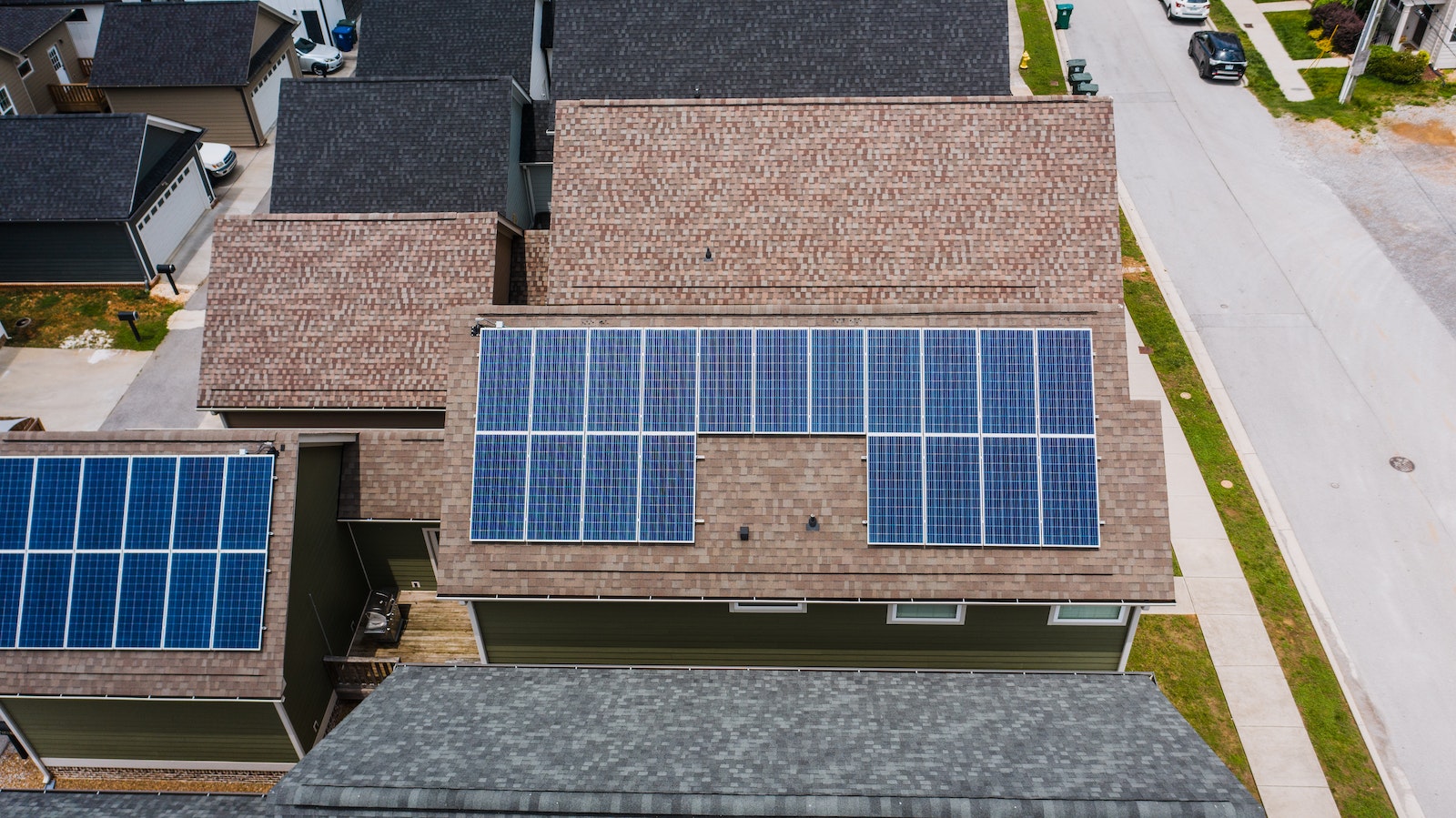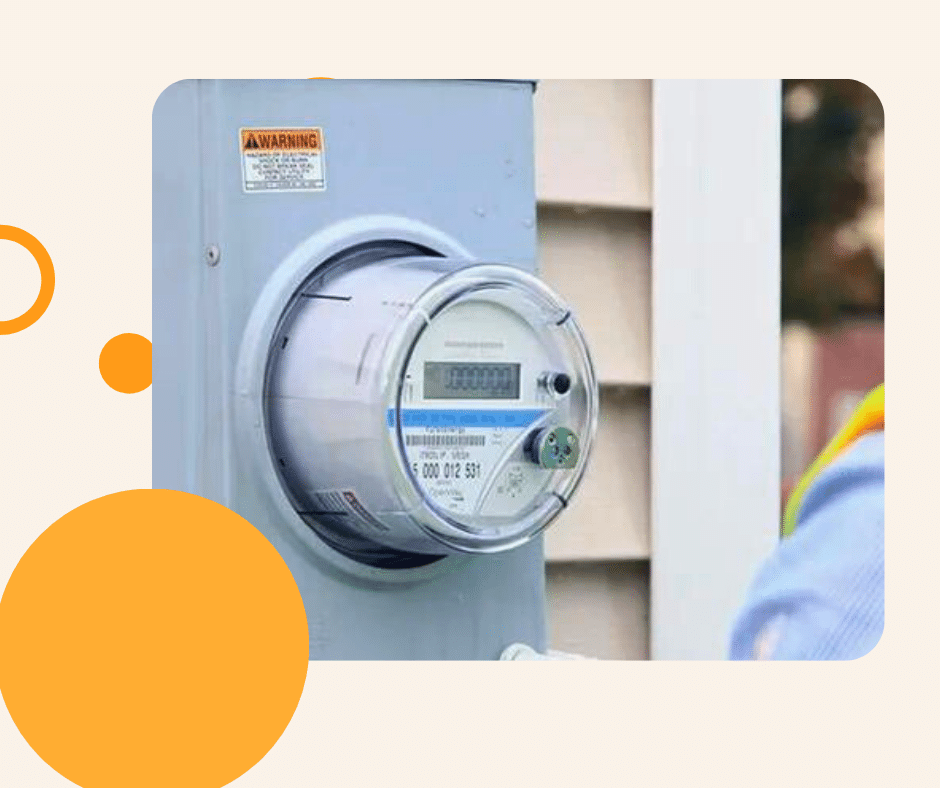Key Takeaways
- Solar panels remain effective even on cloudy days, producing a reliable amount of electricity from diffuse light.
- Advanced technology and optimal system design ensure consistent energy production and cost savings, even in less sunny climates.
- Adding solar battery storage and net metering can maximize benefits, providing backup power and further reducing energy costs.
At Sun Source Energy, we know that choosing solar power is an impactful decision for homeowners seeking sustainable energy solutions and long-term savings.
But for those who live in cloudier climates or experience frequent overcast days, a common question arises: “Do solar panels work on cloudy days?”
This guide explores how solar panels function in cloudy conditions, the factors influencing their efficiency, and how you can still benefit from solar power even when the sun isn’t shining as brightly. By the end, you’ll gain valuable insights into whether solar is right for your home in any weather.
How Solar Panels Work
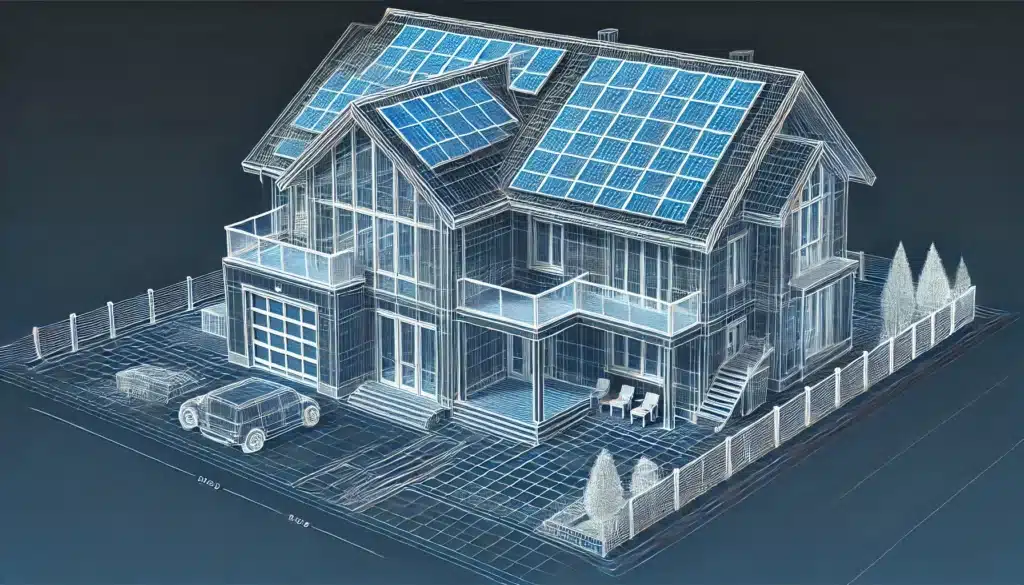
Solar panels generate electricity through a process known as the photovoltaic effect. This involves converting sunlight into direct current (DC) electricity. Each solar panel consists of numerous small units called solar cells. These cells are typically made from silicon, a semiconductor material that plays a crucial role in the energy conversion process.
When sunlight hits a solar cell, it absorbs photons, knocking electrons loose from their atoms. This movement of electrons creates a flow of electricity. The DC electricity generated by the solar panels is then directed to an inverter. This inverter converts it into alternating current (AC) power, which is what powers your home’s appliances and devices.
Even on cloudy days, solar panels can still produce electricity. While the amount of power generated may be reduced compared to sunny days, the system remains a reliable source of renewable energy. By converting solar radiation to DC and then AC, solar panels ensure a continuous flow of electricity to meet your needs.
Solar Panel Efficiency on Cloudy Days
The efficiency of solar panels on cloudy days depends on several factors, including the percentage of sun blockage and insolation during these periods. Insolation refers to the amount of solar radiation reaching a specific area. Even when clouds partially block the sun, solar panels can still produce energy, albeit at a lower rate compared to a sunny day.
On cloudy days, the electricity generated can range from 10% to 25% of the solar panel’s optimal capacity. However, advancements in technology have led to the development of high-efficiency solar panels. These panels can help maximize energy production even when sunlight is limited.
Proper orientation and tilt of solar panels also play a significant role in improving their performance on cloudy days. By positioning your panels to capture the maximum amount of available light, you can enhance their efficiency and ensure a more consistent energy output.
Solar Power Generation on Cloudy Days
It’s important to note that solar panels can still capture and convert light into electricity during rainy or cloudy weather. The amount of electricity generated depends on the density of cloud coverage or the extent of rain. While energy production may be limited when sunlight is scarce, solar panels remain capable of generating some power.
Interestingly, rain can be beneficial for solar panels. It helps wash away dirt and debris that may accumulate on their surface, potentially reducing efficiency. By keeping the panels clean, rain ensures they can absorb more sunlight when it becomes available, optimizing their performance over time.
During periods of limited sunlight, energy production may not reach its full potential. However, solar panels’ ability to generate some power on cloudy days underscores their reliability as a renewable energy source. When combined with other strategies, like solar battery storage, homeowners can ensure a stable energy supply even when the weather isn’t ideal.
What About Rain and Cold? Do Solar Panels Work on Cloudy, Rainy, and Cold Days?
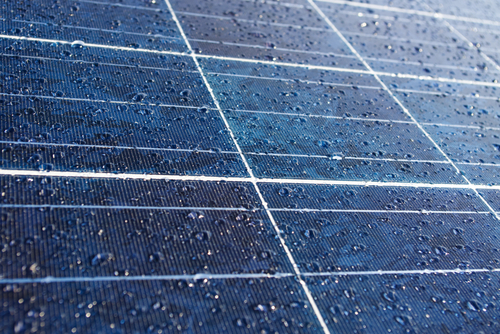
While clouds don’t do your solar panels any favors, they don’t fully stop energy generation either. And on a cloudy, rainy, and cold day the biggest issue your solar system will face is those clouds. Believe it or not, you don’t need to worry about cold or rain in relation to a solar power system.
Cold temperatures are ideal for solar panels. The US Department of Energy (DoE) explains high heat interferes with the photovoltaic effect. That reduces the overall efficiency of your system. Your system can produce more electricity during a cold and sunny day than is possible during a clear summer day.
While the clouds that come with rain can cause a drop in efficiency, that’s where the negative effects end. Solar panels are most effective in direct sunlight, but they can still generate power using indirect sunlight, ambient diffuse light, and reflected light from the sky. Rain simply won’t damage a properly installed and maintained solar power system.
In fact, rain can take care of some maintenance work on its own by cleaning dirt and grime that blocks the sun’s rays from reaching your panels.
Do Solar Panels Work in Snowy Conditions?
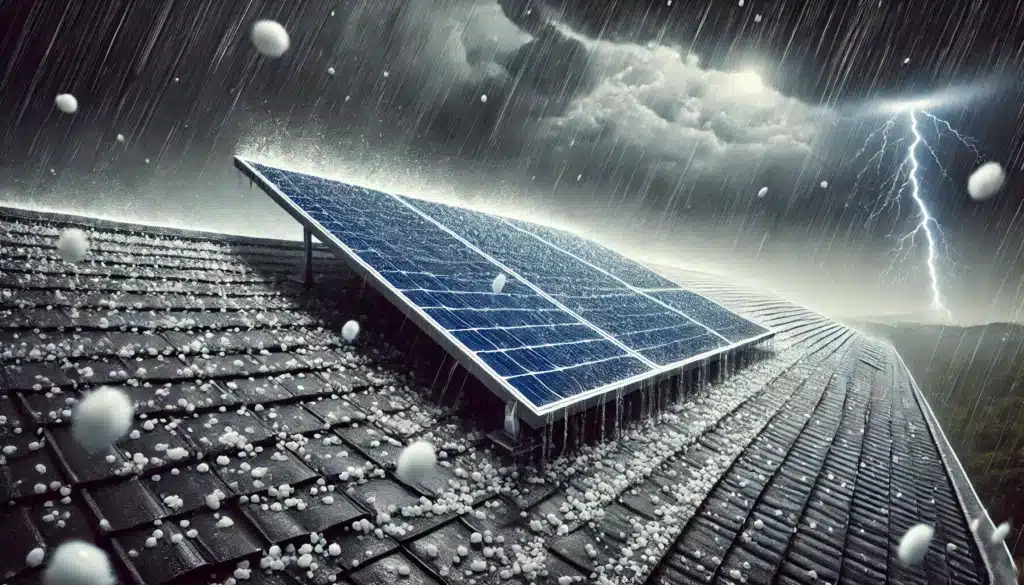
A dusting or light accumulation of snow won’t affect solar panels. While snow clouds will partially obscure the sun, you can still count on your panels and solar cells to generate some electricity. Snow can also help clean your panels, similar to rain.
The major area of concern when it comes to winter weather and solar panels is heavy accumulations of snow. Heavy snow can block light from reaching your panels, a separate DoE article points out. And a major snowfall could put enough weight on your panels that the frame cracks or is otherwise damaged.
However, common installation angles for panels and their smooth, dark, and reflective surface help the snow to slide off.
Do Solar Panels Work at Night?
No, solar panels don’t work at night. Solar batteries store surplus electricity generated by solar panels during the day for use at night, ensuring a consistent power supply. The total absence of sunlight prevents the panels from generating electricity. This is a rare instance where conditions mean panels won’t produce any energy, as opposed to only lowering their output.
Solar Battery Storage and Net Metering
One of the key advantages of solar power systems is the ability to store excess energy through solar battery storage. This stored energy can be used to power your home at night or during power outages, providing a reliable backup source of electricity.
Net metering is another valuable feature for homeowners with solar panels. It allows you to stay connected to the grid and draw electricity from it during nighttime or periods of limited energy production. Any excess energy generated by your solar panels is fed back into the grid, often resulting in credits that can offset your electricity costs.
Solar batteries also offer the benefit of avoiding higher electricity rates during peak hours. By relying on stored energy during these times, you can reduce your reliance on the grid and save money on your energy bills.
Adding a solar battery to your system enhances its overall efficiency and ensures a consistent power supply, even during less productive periods. It’s an excellent way to maximize the benefits of solar panels and increase your energy independence.
Common Myths About Solar Panels
There are several myths surrounding solar panels, particularly regarding their performance on cloudy days. Let’s address some of the most common misconceptions:
Myth: Solar panels don’t work at all on cloudy days.
Fact: Solar panels still generate electricity from diffuse light on overcast and rainy days. While output may be reduced, they remain operational.
Myth: Cloudy weather makes solar power unreliable.
Fact: Advanced forecasting and grid integration techniques help balance solar supply and demand, ensuring a steady flow of energy even during cloudy periods.
Myth: Solar panels are not effective in cloudy climates.
Fact: Solar power can still be a smart investment in cloudy locations with proper system design and optimization. In fact, some areas with frequent clouds have achieved impressive solar energy generation levels.
Understanding these myths is crucial for homeowners considering solar power. By dispelling misconceptions, you can make an informed decision about the viability of solar energy for your home.
Benefits of Solar Power
Solar power offers numerous benefits for homeowners, making it a popular choice for those seeking sustainable energy solutions. Here are some of the key advantages:
- Renewable and Sustainable: Solar power is a renewable source of energy, reducing dependence on fossil fuels and contributing to a cleaner environment.
- Reduced Carbon Footprint: By using solar panels, homeowners can significantly decrease their carbon emissions, helping combat climate change.
- Cost Savings: Solar power can lead to substantial savings on electricity bills, especially when combined with net metering and battery storage.
- Increased Property Value: Homes equipped with solar panels often experience an increase in property value, making it an attractive investment for homeowners.
These benefits highlight the long-term value of adopting solar power, both for individual households and the planet as a whole.
Maximizing Solar Panel Efficiency
To get the most out of your solar panels, consider implementing strategies to maximize their efficiency:
- High-Efficiency Panels: Investing in high-efficiency solar panels ensures maximum energy production, even on cloudy days.
- Proper Orientation and Tilt: Adjusting the orientation and tilt of your panels can optimize sunlight capture and improve overall performance.
- Regular Maintenance: Keeping solar panels clean and free of obstructions helps maintain their efficiency and extends their lifespan.
- Monitoring Systems: Regular monitoring allows you to track energy production and quickly identify any issues that may affect performance.
By following these tips, homeowners can make the most of their solar panel systems and enjoy consistent energy savings.
Is Solar Power Right for You?
Deciding whether solar power is right for your home involves considering several factors. Properly sizing the solar system and optimizing the panel orientation are essential steps to maximize solar production.
Even in cloudier climates, solar power can be a cost-effective investment with the right system design. Adding solar battery storage further enhances energy independence and ensures access to power during outages.
Assessing your energy needs, budget, and environmental goals can help determine if solar power aligns with your objectives. Consulting with solar experts can provide personalized recommendations tailored to your unique circumstances.
Of Course Solar Works On Cloudy Days!
Solar panels can still generate meaningful amounts of electricity from diffuse ambient light on cloudy days. With proper system sizing and orientation, solar power can be a smart investment even in overcast climates.
For homeowners, this translates to cost savings, increased energy independence, and a reduced carbon footprint. By choosing solar power, you’re contributing to a cleaner, more sustainable future while enjoying the benefits of renewable energy.
A Solar Energy System Partner You Can Count On
Ready to explore your solar options?
Sun Source Energy, a fully integrated solar company in Las Vegas, NV, is here to guide you through every step, from system design to installation.
Discover how our expertise can help you maximize energy savings and make a lasting impact on the environment. Contact us today to start your journey towards energy independence!
Start saving money on your electricity bill!

